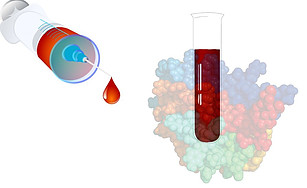What is a Phlebotomist?
what is a phlebotomist?
A phlebotomist is a medical professional that specializes in drawing blood, preparing it for medical testing/diagnosis, transfusions, donation, and/or research. Additionally, a phlebotomist may have to examine their samples to help provide other healthcare professionals with more information for their diagnosis and treatment plans.
How do they take the blood?
Blood collection is typically done by venipuncture, or in some cases finger pricks, or when dealing with infants a heal prick is often used. A phlebotomist is responsible for making the blood drawing or transfusion procedure as comfortable as possible for the patient. While handling any bodily fluid (including blood) it is incredibly important that the phlebotomist follows the guidelines and regulations set by the Occupational Safety and Health Administration.
What kind of things is a phlebotomist looking for in the blood?
While there are numerous things that could provide useful information in a blood sample the most basic include the cell count and blood type in addition to any specific tests that the doctor ordered. A phlebotomist must accurately record their findings for the practitioner or physician that referred to them.
How does someone become a phlebotomist and where do they work?
The most common routes to become a phlebotomist include studying for four months in a trade school, or taking a one year college course that includes an internship. CP certification is a requirement not only for most if not all available jobs, but also for the internships.
Phlebotomists have a few options for work with the most common settings being in hospitals, clinics, blood donation centres and laboratories. As the healthcare industry is often expanding it is likely that there will be jobs in this area for years to come.
What are some of the additional skills required to be a phlebotomist?
- patience and compassion
- attention to detail
- a steady hand
- accurate labeling and handling of collected samples
- guiding nervous patients through the collection or transfusion process
- technical skills for analyzing samples
Interested in learning more? Check out the links below!
https://www.cambridgehealth.edu/career-profile-phlebotomist/
https://www.gurnick.edu/articles/what-is-a-phlebotomist
https://www.sokanu.com/careers/phlebotomist/
Check out our other articles too!





